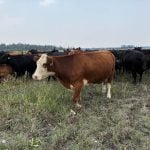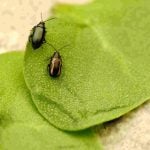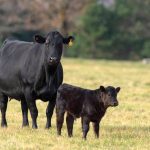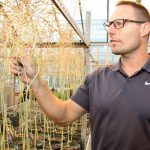
Tag Archives Genetics

Beef DNA testing now available in Canada

RNAi research looks for genetic-level flea beetle control
A Canadian company hopes to develop an alternative to mainstream insecticides when managing flea beetles in canola crops

EU governments fail to agree on gene-editing rules despite patent exception

Funding to help make cattle data gathering easier
Partnership between Angus and Holstein association will look at sharing trait information and how to automate data management

The road to acceptance for gene editing
The Council for Agricultural Science and Technology offers recommendations to ensure plant breeding tech continues to benefit agriculture

Genome selection helps find next superstars
Sequencing the canola genome in 2014 paved the way for researchers to be more precise when developing new varieties

At Ag in Motion: Soybean proponents still eye western expansion
Crop seen as a good add to rotations -- if conditions are right

Gene-edited crops clear CFIA’s regulatory bar
Agency guidance puts gene editing on level of conventional breeding

Genetic attack cutting edge of sclerotinia fight
Hacking messenger RNA can prevent fungal disease from propagating

Researchers use gene editing to create breakthrough canola variety
Shorter, highly branched canola plants with more pods show the power of the cutting-edge technology


